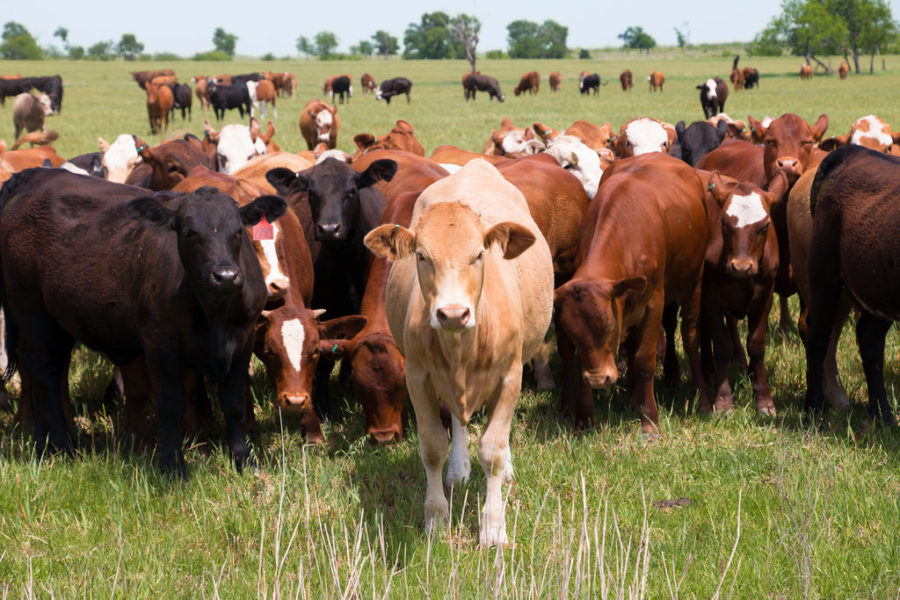Alan
Thirty-four years ago, motivated to align my personal diet with my concerns about the environment, I stopped eating meat. Strictly speaking, I became ovo-lacto vegetarian, meaning I ate eggs and dairy, but no other animal foods. Twenty-four years ago, when I returned home to the Northwest, I added the occasional serving of fish (carefully selected for sustainability, to the degree I can) back into my diet. I did so largely because being Cascadian and never eating salmon seemed almost irreligious—like being Catholic and refusing to take communion.
For personal reasons (and professional ones!), I have therefore tried to stay up to date on the research concerning animal farming and its impacts on human health and the environment and on the growth of innovative, low-impact farming methods. I even published a Worldwatch paper on the subject myself in the early 1990s.
But I discovered how far behind my understanding had fallen when, over the past few weeks, I read Cowed by Denis and Gayle Hayes. The book is a panoramic look into the American relationship with cows. Mad cow disease and other frightening health threats, hormones, antibiotics, water use, energy intensity, overgrazing, the corruption of politics with cow money, cultural history, factory farming—all the relevant topics get their due in the book.
But the real surprises, for me, were twofold.
First, the authors’ growing partiality to the animals themselves was infectious. I’ve been a vegetarian for my entire adult life, but I’ve usually found animal rights and animal cruelty arguments too shrill or moralistic to win me over. But this book did, mostly by gently and unassumingly helping me develop a modicum of fondness for bovines themselves.
Second, unlike anything else I’ve read on the subject, it gave me a few small urges to eat beef. That was a huge surprise and, after 34 years without it, I’m not going to start. I doubt I could even digest the stuff anymore. But the book’s portraits of enterprising, innovative ranchers and farmers raising beef cattle in new (and sometimes old) ways—grass-finished, organic, humane, and in partnership with wildlife—actually made me feel a little left out. In the end, the book is not an argument for vegetarianism, but for a fundamentally, excitingly new relationship with cows. Here’s one way it summarizes its recommendation for individual eaters:
By cutting our meat and dairy consumption in half—which will result in our consuming an amount that is still more than ample to meet our needs—we can afford to buy smaller, healthier portions from well-treated cows with natural bovine diets. In 2013 an average American ate 57.7 pounds of beef per year . . . If we can pare that down to 26 pounds—half a pound a week—and limit it to the healthiest, most sustainable beef, we can reduce pollution, global warming, medical costs, animal cruelty, loss of soil, loss of biodiversity, and germs resistant to antibiotics, while increasing the amount of land and water available for other uses. It’s a dozen-for-one sale.
If I’d read that 34 years ago, rather than Francis Moore Lappé’s Diet for a Small Planet, perhaps I would have been eating the occasional grass-fed cut of organic, local beef all along. (Disclosure: I am not remotely impartial about the Hayes. They have been friends for a quarter century, and Denis has long been a mentor to me. He directs the Bullitt Foundation, which has been Sightline’s most consistent foundation supporter since Denis helped me launch the organization in 1993.)
Serena
The editor-in-chief of the not-your-usual-science-magazine Nautilus wrote a compelling reflection on the stories missing from our public discourse on climate change: those about science. And no, not to encourage shoving more data and charts in people’s faces and getting all upset when they still don’t agree with us climate advocates (as I presume most readers of this site are), but rather to share the stories of how scientists arrived their conclusions—stories that are often engrossingly non-linear and that may just have the power to plant new seeds of curiosity and engagement between participants.
Every year, grassroots environmental justice organization Got Green celebrates Green-a-thon, a community celebration and fundraiser that supports the work of working-class communities of color in Seattle to define and work toward their own vision of a just transition and climate justice. Learn more about the event, and volunteer or donate here.
Iceberg tourism? Yes, it’s a thing. And in a remote town in eastern Canada, it’s a particularly huge and close-to-land thing right now.

